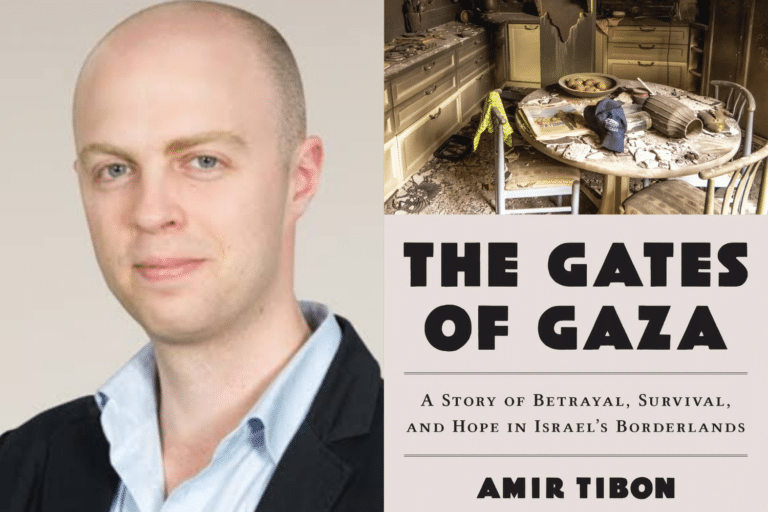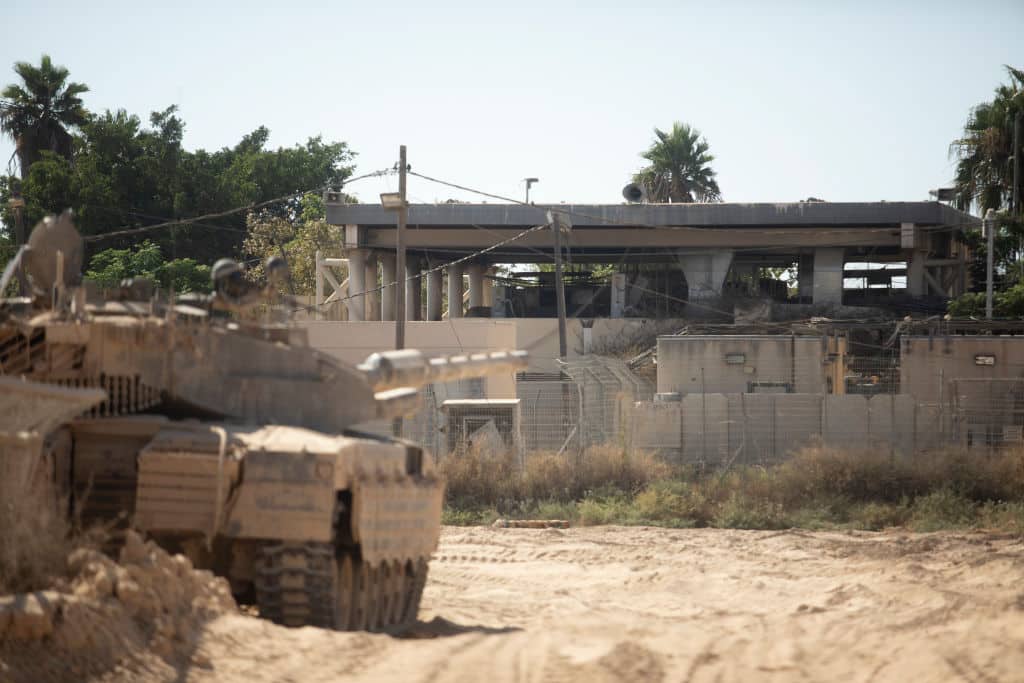
On the evening of Oct. 7, Amir Tibon’s post that he survived Hamas’ attacks on Israel was seen by three million people. The Haaretz journalist, who moved from Tel Aviv to Kibbutz Nahal Oz near the Gaza border, thought the worst he would face is some mortar rounds and thought the kibbutz would be more relaxing than Tel Aviv. The horrific events of Oct. 7 have shattered those perceptions.
Tibon’s story will soon be known by the many more who will see the movie based on his experiences on that tragic day. But for now, people can learn about Tibon’s experiences in his captivating book “The Gates of Gaza: A Story of Betrayal, Survival, and Hope.”
Waking up to hell
On the morning of Oct. 7, Tibon heard the whistling sound of projectiles and bullets going through the window of his home. He and his wife, Miri, hustled to the safe room, where his two small daughters, Galia and Carmel, were.

If this was a movie, Tibon could have called Liam Neeson who would threaten Hamas and save the day with his skills. But this was real life. Amir’s father, Noam, 62 was a retired IDF general who did have the ability to save him if he could somehow avoid being killed on the way, which would not be easy. Noam told his son to stay in their safe room and make no noise. He understood that time was of the essence, and he could not rely on the IDF to save his son, and Noam chose to complete the rescue mission himself.
Tibon writes that he believes his father could defeat any shooter face to face but worried that there was a large possibility Noam would be hit by a rocket-propelled grenade driving to his house.
It’s no surprise that this astounding, harrowing, and inspiring book is being made into a film, titled “October 7,” by “Fauda” creators Lior Raz and Avi Issacharoff.
Tibon recounts how at first, he thought the IDF would come and save his family, but was alarmed when they were in the dark, literally and figuratively, hours later. They had no idea that the Nahal Oz IDF base was overrun. As they waited, Hamas was entering their neighbors’ homes. Tibon knew Arabic and heard a terrorist say that they needed to continue breaking into the homes.
‘Gates of Gaza’ displays heroism in many ways
One of the most amazing parts of “Gates of Gaza” is that Tibon’s father drove from Tel Aviv, witnessed a Hamas ambush, and saved a couple from the Nova festival along the way.
The book includes stories and pictures of soldiers who rushed in to help civilians along the journey, many of whom were killed by Hamas. Tibon commemorates throughout the book those who gave their lives for their country and to help civilians.

To drive through firefights and risk one’s life at 62 years old is certainly the stuff legends are made of. Tibon claims he didn’t want to write the book but was convinced by his agent, Jessica Kasmer-Jacobs. If Tibon wrote his father’s story as a thriller, people would likely not believe it was true.
“Gates of Gaza” explains how his 62-year-old father, armed with a handgun — then acquiring a pistol off the body of a dead soldier —, went into a war zone, fought against terrorists, and saved his son.
One of the most touching moments of the book is when Tibon blames himself for deciding to move to Nahal Oz near Gaza, but his wife Miri assures him that they made the decision together. He also recounts his wife asking why they had to pick the most dangerous kibbutz.
Tibon describes how he and Miri had to explain to his children why they could not leave the safe room, eat, or watch TV. In a horrifying moment, Tibon figures that since he couldn’t hear the family dog, it must have been murdered. The journalist describes that he prepared to die and thought his only chance was if his father came.
Driving into the kill zone
There is no way a reader can even hope to understand the chaos and the horrors of the day, Tibon does a good job of placing you in his shoes.

Why Tibon’s family survived Hamas’ break-ins is unknown, but five terrorists were found dead outside his home. He writes of a heroic security team that drove around and around in a car, shooting at terrorists when they saw them, hoping that it would give the impression that there was more than one vehicle.
Some of the extensive Israeli history shared in “Gates of Gaza” is excessive, but the reader truly understands some of the security failures on Oct. 7. Tibon hammers in a crucial point: While the Iron Dome system, which intercepts short-range missiles, is nearly flawless, it can’t help those in Nahal Oz as they are so close to the Gaza border. The system doesn’t have time to make calculations needed to know where it would land and intercept it.
A real-life page-turner that seems too impossible to be true
“Gates of Gaza” reads like an insane thriller that could not be believed. While the book gives space to mourn over the tragedies of Oct. 7, the Tibon family’s story is astonishing, not only that the family survived, but that his father would risk his life, knowing there would be a good chance he’d be killed on the way.
It is unclear if residents of Nahal Oz will ever return to their community as many feel betrayed by a government that did not protect them and the experience of being brutalized by an enemy whose savagery knew no bounds.
“Gates of Gaza” is a story of heartbreak, but also love and a father defying incredible odds to save his son.


